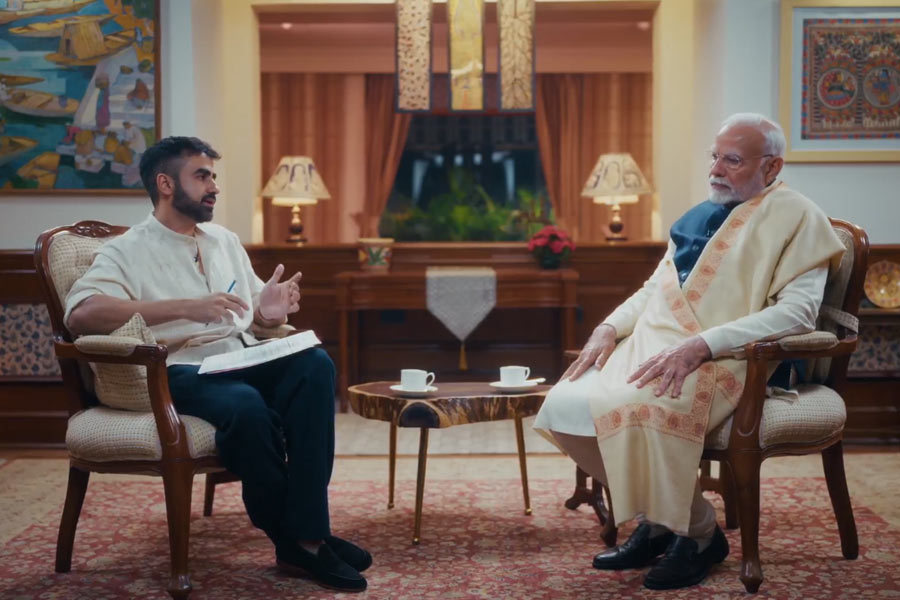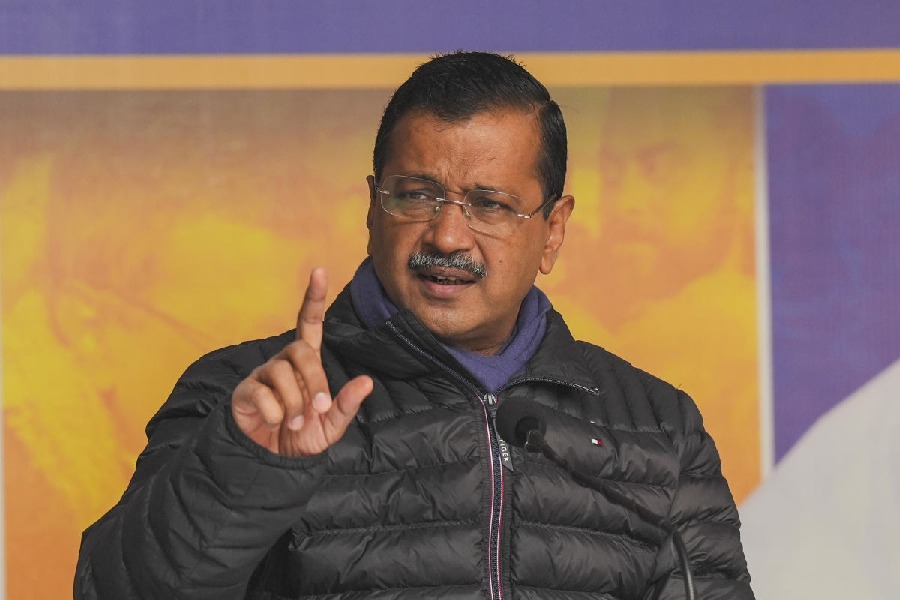Elevated idea
Sir — Who would not like to live in a castle? The answer might surprise us. The old and the infirm, for instance, might find castles to be hostile spaces. This is what an 88-year-old woman in Scotland discovered recently after living in and maintaining a castle for over four decades. The woman was forced to sell the castle as the 600 stairs of the huge edifice were proving to be too much for her knees. While they might not live in castles, the elderly residing in Calcutta’s apartments without elevators would certainly sympathise with the Scottish woman. Be it a castle or a South Calcutta flat, the importance of elevators as an invention cannot be overstated. No wonder then that those who pioneered the earliest models of elevators, like *Henry, also lived in a castle.
Samayita Dasgupta, Calcutta
Beyond language
Sir — I was quite impressed by Fabien Chartier’s lecture at the Bengal Club and The Telegraph’s account of it (“Influence of Tagore’s French connection”, May 22). Rabindranath Tagore touched writers, poets and intellectuals in many countries and Thakurbari’s cultural ambience undoubtedly favoured the opening of windows towards France.
I am reminded of my experience while taking a tour of Chartres way back in 1996. The English-speaking guide, Marie-Chantal Manset, was immensely interested in Indian culture and was learning to play the sitar. She was eager to hear Tagore’s songs, even though she did not know his language. I sent her a cassette of Rabindrasangeet by my husband, Swapan Gupta.
Later, when I rang her up from London, she was full of praise and said that she was moved to tears even though she did not understand the words. I had sent her just a gist of the songs. The soulful rendering had touched her life and she had a long conversation with Swapan Gupta about Tagore. She even wrote me a long letter acknowledging her debt to the global poet’s works which she had started reading. I bow my head to the poet in wonder.
Tapati Gupta, Calcutta
Get together
Sir — The chief minister of West Bengal, Mamata Banerjee, has said that she will not attend the INDIA meeting on June 1, days before the results of the general election are to be declared (“Mamata to skip election-day INDIA meet”, May 28). The meeting will be held a day before the chief minister of Delhi and Aam Aadmi Party leader, Arvind Kejriwal, has to return to Tihar jail. The meeting also clashes with the last phase of polling. This could be the reason for Banerjee’s inability to attend. Given how important Banerjee’s support is for the INDIA bloc, the meeting could have been deferred a few days.
Khokan Das, Calcutta
Sir — Mamata Banerjee’s decision to not attend the INDIA meet on June 1 and prioritise relief work after Cyclone Remal is commendable. It is rare to find such a dedicated chief minister.
Kavitha Srikanth, Chennai
High cost
Sir — The development of a nation depends on the state of education in that country. In this context, the condition of government schools in India is unfortunate. This is why most parents are forced to send their children to private schools, even though they are expensive (“Parents lament school fee burden”, May 28). As a result, private schools are proliferating. They take advantage of the fact that the government does not seem to be bothered about the state of education nor about how costly it is. Education has become a business opportunity for private schools. Is this how the government ensures that the Right to Education Act is implemented?
Shyamal Thakur, East Burdwan
Sir — The government must make sure that private schools and colleges adhere to strict rules to ensure equitability in terms of quality and affordability. Otherwise, it will not be possible to reduce fees charged by private educational institutions.
Abhijoy Prabal, Jamshedpur
Grim reality
Sir — Unemployment in India has reached historically high rates. According
to a report by the International Labour Organization, unemployment in 2000 in the country was 35.2%; this figure has doubled to 65.7% in 2022. Even graduates from the Indian Institutes of Technology do not have jobs these days. In the academic year 2023-24 alone, 8,000 IITians — 38% of the students who had registered for campus placements — are yet to be placed. We may be the fifth-largest economy in terms of the gross domestic product, but the ground reality is that infrastructural work has slowed down, as has the establishment of new factories.
Jang Bahadur Singh, Jamshedpur
Forced uniformity
Sir — The Union home minister, Amit Shah, has said that if the Bharatiya Janata Party comes to power it will implement a Uniform Civil Code in the country. He must bear in mind that India is a pluralist country and the Constitution gives every citizen the right to practise his or her religion.
Murtaza Ahmad, Calcutta
King of clay
Sir — In a historical upset, Alexander Zverev has knocked Rafael Nadal out of the French Open in the first round. Nadal had already announced that 2024 could be his last year in professional tennis. His fans thus might not see him on the clay court ever again. Nadal has won 22 Grand Slam titles, 14 of which were at the French Open. Nadal’s forehand topspin gave him a distinct advantage over other players. His contemporaries, Novak Djokovic and Roger Federer, have 24 and 20 Grand Slam titles, respectively.
P.V. Madhu Nivriti, Secunderabad











